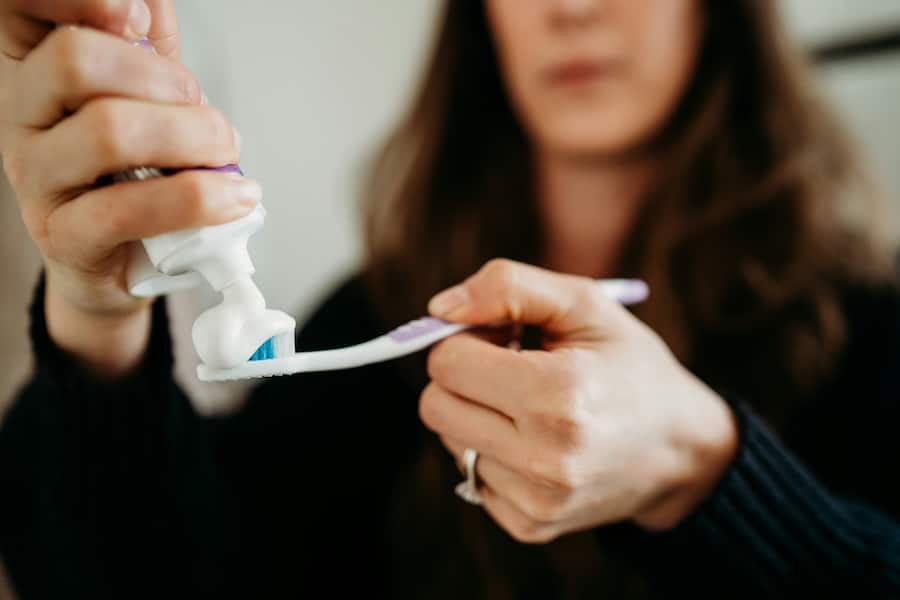Electric Toothbrush vs Manual: Which Is Better for You?

Deciding between an electric and a manual toothbrush? Both can clean your teeth well when used properly, but each has its own benefits. This guide explains the differences so you can choose the best option for your oral health.
Not sure how to respond? This guide will walk you through what to do for common dental emergencies, what to avoid, and how to know when to seek immediate help.
Benefits of Electric Toothbrushes
Electric toothbrushes offer features and advantages that can make daily brushing easier, more effective, and even more enjoyable for many people.
More Effective Plaque Removal
Research consistently shows that electric toothbrushes remove more plaque than manual brushes. A 2019 study following nearly 3,000 people for over 11 years found that sonic toothbrushes reduced signs of periodontal disease and tooth loss compared to manual brushing.
Built-in Timers for Better Habits
Most electric toothbrushes include two-minute timers with 30-second intervals that beep to signal when to move to the next quadrant of your mouth. This feature helps ensure you brush for the dentist-recommended duration.
Easier for People with Limited Mobility
Electric toothbrushes are particularly beneficial for individuals with physical limitations, arthritis, or conditions like Parkinson’s disease. The powered movement reduces the need for precise hand dexterity.
Better for Orthodontic Appliances
People wearing braces often find electric toothbrushes more effective at cleaning around brackets and wires, where plaque can easily accumulate.
Engaging for Children
Many kids find electric toothbrushes more fun and engaging than manual ones, which can help establish better brushing habits early. Some models even include apps that gamify the brushing experience.
Benefits of Manual Toothbrushes
Manual toothbrushes remain a reliable, budget-friendly choice that can deliver excellent cleaning results with the right technique.
Affordable and Accessible
Manual toothbrushes are inexpensive and easy to use, with no need for charging or replacement heads. You can get a reliable one for just a few dollars, making them a practical option for everyday use.
Perfect for Travel
Manual toothbrushes are lightweight, compact, and don’t require chargers or batteries. They’re ideal for travel and won’t take up valuable luggage space.
Wide Variety of Options
Manual toothbrushes come in countless styles, bristle types, and colors, allowing you to find one that fits your mouth size and personal preferences, just remember that soft bristle brushes are recommended.
Excellent Results with Proper Technique
When used with the correct brushing technique, manual toothbrushes can achieve excellent plaque removal and gum health results that rival electric models.
Factors to Consider When Choosing
Choosing the right toothbrush comes down to more than preference. Factors like cost, dental needs, and professional advice can all influence the best option for you.
Cost Considerations
Electric toothbrushes require a higher initial investment, typically ranging from $25 to $200 or more. You’ll also need to budget for replacement brush heads every 2-3 months. Manual toothbrushes cost just a few dollars and need complete replacement every 2-3 months.
Your Specific Dental Needs
Consider your individual situation:
- Braces or Orthodontic Work: Electric toothbrushes clean around brackets and wires more effectively than manual ones. Their small, vibrating heads can reach spots a manual brush might miss.
- Gum Sensitivity or Recession: Electric brushes with pressure sensors and gentle modes can protect sensitive gums. Your dentist may still recommend a soft manual brush depending on your needs.
- Limited Dexterity or Mobility Issues: For those with arthritis or limited hand movement, electric brushes require less effort and provide consistent cleaning. They make it easier to maintain good technique.
- Children or Elderly Individuals: Electric toothbrushes can be easier and more engaging for kids and seniors. Features like timers and gentle modes support better brushing habits.
Professional Recommendations
Your dentist or hygienist can provide personalized guidance based on your oral health assessment, gum condition, and specific risk factors.
Common Misconceptions Debunked
Myth: Electric Automatically Means Better Brushing
An electric toothbrush won’t automatically improve your oral health. Proper technique, consistency, and brushing for the full two minutes matter more than the type of brush you use.
Myth: Manual Brushes Are Outdated
Manual toothbrushes remain highly effective tools when used properly. Many dental professionals use manual brushes themselves and achieve excellent oral health.
The Truth: Technique and Consistency Matter Most
Whether you choose electric or manual, the most important factors are using proper brushing technique, brushing for two minutes twice daily, and maintaining consistent oral hygiene habits.
Smart Dental Network's Recommendation
At Smart Dental Network, our dental professionals take a balanced approach to toothbrush recommendations.
We typically recommend electric toothbrushes for patients with:
- Physical limitations or arthritis
- Braces or other orthodontic appliances
- Difficulty maintaining proper manual brushing technique
- Children who need extra motivation to brush
Manual toothbrushes work excellently for patients who:
- Have good dexterity and brushing technique
- Prefer the control of manual brushing
- Travel frequently
- Want the most cost-effective option
Making the Right Choice for Your Smile
The most important decision isn’t whether to choose electric or manual, it’s choosing to maintain consistent, thorough oral hygiene habits. The best toothbrush is the one you’ll use correctly and regularly.
Remember that proper brushing technique, flossing daily, and regular dental checkups matter more than the type of toothbrush in your medicine cabinet. Focus on brushing for two full minutes, using gentle circular motions, and reaching all surfaces of your teeth.
Ready to make the best choice for your oral health? Find a Smart Dental Network provider near you. Our experienced dental professionals can evaluate your specific needs, demonstrate proper brushing techniques for your chosen toothbrush type, and provide personalized recommendations to help you achieve optimal oral health.

